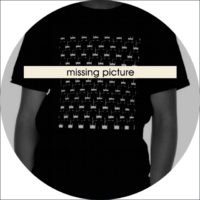| LECTURE ENG |
  |
Creative Spaces sind die Innovationsmotoren der Kreativwirtschaft. Sie sind Ideenpools und Labore für Nachwuchskünstler/innen und Produzent/innen in den Bereichen Musik, Film, IT/Games und moderner Kunst. Sie machen Städte attraktiver, stimulieren den Tourismus, die Digitalwirtschaft und die Immobilienwirtschaft. Um Kreative anzuziehen, müssen Creative Spaces erschwinglich und zugänglich sein. Allerdings agieren Städte nicht vorausschauend, wenn es um den Schutz kreativer Räume zugunsten von vermeintlich rentableren Projekten geht. Deshalb ist es notwendig, die Veränderungsprozesse zu begleiten und die Situation mit anderen Städten zu vergleichen. Der CREATIVE FOOTPRINT ist ein gemeinnütziges Projekt, das Kreative weltweit unterstützt, Freiräume zu erhalten und innovationsfreudig zu bleiben, indem für kreative urbane Räume ein Index berechnet und der Öffentlichkeit zur Verfügung gestellt wird. Städten wird damit geholfen, ihren kreativen Fußabdruck für Musik, Visuelle Kunst, Darstellende Kunst, Literatur und mehr zu berechnen.
Creative spaces are the engine for innovation of Creative Industries. They are pools of ideas and laboratories for artists and producers in music, fashion, film, gaming and modern art. They also make cities more attractive and accelerate and stimulate Tourism, the Digital Economy and Real Estate Industry. To attract creatives who embrace experimentation, spaces must be affordable and accessible. However, cities all over the world are lacking in foresight when it comes to the loss of creative spaces in favour of supposedly more profitable projects. That’s why there is a need to monitor changing processes and be able to provide a comparison with other cities. The Creative Footprint is a non-profit project to support creatives worldwide to have the freedom to create and the ability to innovate, by providing an index of creative spaces in urban areas. We help cities to calculate their Creative Footprint (music, visual art, performing art, literature) to have a strong tool to support and create awareness about the needs of Creative Industries.
Lutz Leichsenring was running one of the largest platforms for music events in the early 2000s in Germany. 2004-2010 he owned club and a restaurant business and in 2015 he was one of the founder of NAmedia GmbH which is into developing Apps and young targets GmbH, an Berlin and London based agency which develops events for students and graduates. As spokesman and member of the executive board of the Clubcommission Berlin, since 2009 Lutz fights for the rights of Berlin’s vast underground club scene. He also happens to be a member of Berlin’s Chamber of Commerce, where he frequently votes on city development issues that serve to protect club areas affected by gentrification.
Local government as partner in urban creative initiatives
Bottom up creative initiatives cope with lack of resources (skills in development of real estate, networks, expertise, finances) to transform venues in creative hotspots and art factories. Local authorities can play a complementary role to support such bottom up initiatives by tailor made project management, expertise, subventions guarantees on loans etc.
Alan Miller is Chairman of The Night Time Industries Association (NTIA). The NTIA was formed to promote the benefits and enormous contribution of the Night Time Industries, the entrepreneurs that create and innovate across the UK contributing 66 Billion UKP per year in revenue and boosting employment, regenerating and generally improving our cities. Alan was CEO of The Vibe Bar for almost 20 years, until Nov 2014. He is the co-founder of the Truman Brewery, a 10-acre site in London’s East End. The Truman Brewery now has over 200 companies, ranging from recording studios to art galleries, entertainment spaces, restaurants, bars, cafes, fashion and retail. It has helped regenerate a significant area of London, creating a new cultural quarter. Alan sat on The Arts Council’s London Arts Board for several years. He is on the board of the Mayor of London’s Night Time Commission and Music Development Board. Alan speaks internationally about the benefits of Night Time Industry and how Urban Planning and cities can benefit from the cultural and economic activities of this sector. He is often quoted in the international press and writes regularly for major publications and appears with major broadcasters. The current campaign The NTIA is heading up is #SaveNightlife at www.savenightlife.com which has international artists, promoters, labels, festivals and creative businesses supporting across Britain with the main emphasis of having the public engaged and mobilised to share their views on how much they love nightlife. It has also supported from the start #SaveFabric as a national and internationally recognised camapign.
Atelierbeauftragter für Berlin und Leiter des Atelierbüros im Kulturwerk des bbk berlin
Since 2015 he is spokesman of the initiative Haus der Statistik an member of the head of the cooperative ZUsammenKUNFT Berlin e.G




